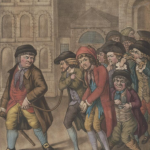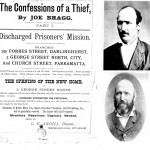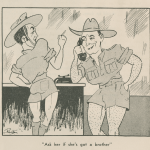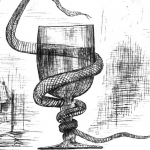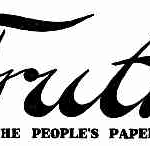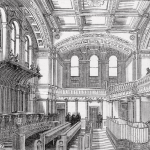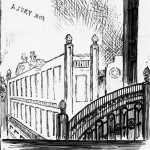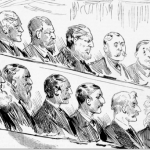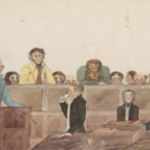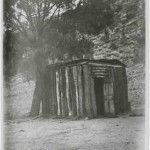Research Brief 20 One of the benefits of the Prosecution Project’s large-scale digitisation of court records is that it not only allows researchers to trace individuals, but to map changes in the criminal justice process over a long period of time. Mapping these longitudinal changes is not only of potential value to scholars of legal […]
Category Archives: Research briefs
Joe Bragg: a life in crime
Research Brief 19 Last week a new entry appeared in the Prosecution Project database. Trial #64652 records the conviction on 16 February 1870 of Joseph Bragg on the charge of wounding with intent to do grievous bodily harm. He had pleaded guilty. Bragg was tried before the Chief Justice of New South Wales, Sir […]
Reading against the grain: Queer lives and loves in court
Research Brief 18 Court records document more than policing patterns and criminalised behaviours of the past. While they are crucial to writing criminal justice histories, they can be used in other ways, read against the grain to provide a window into particular cultural practices and social behaviours. These narratives are not without their methodological […]
Alcohol abuse and criminal offending
Research Brief 17 Alcohol addiction can be a criminogenic risk factor. Contemporary criminology studies show that drug and alcohol abuse is linked to increased contact with the criminal justice system. A Queensland Corrections policy document cites studies indicating that 29% of offenders reported being under the influence of drugs and/or alcohol at the time […]
The Truth about child sexual assault
Research Brief 16 In January 1924, an article in Sydney Truth alerted its readers to a spate of crimes against children that had recently appeared before the courts. Sexual offences against three girls and one boy had been committed in various suburbs around the city within a matter of weeks. While the […]
The court as spectacle
Research Brief 15 The principle of open justice – referring to the transparency of the trial process – has a long history. Courts in ancient Greece, for example, were constructed with low walls so the public could observe the proceedings while attending to their ordinary business. Similarly, following the Norman Conquest, courts were […]
The rise of the guilty plea
Research Brief 14 When most of us think of criminal trials, our general point of reference is popular culture. Courtroom dramas like Janet King, Rake, and Law and Order typically script a characterisation of a full prosecution process. There are the pre-trial activities by police: an investigation, interviews with witnesses and suspects, and charges […]
Juries and impartial justice
Research Brief 13 In 1898, police constable Edward Johnson was committed for trial on larceny charges. Johnson, acting in his official capacity, had allegedly received an overdue rates payment from a householder at Bendigo, and neglected to pay it into the council fund. In December Johnson was duly tried, but the jury failed to […]
Criminals in the courtroom
Research Brief 12 In 1837, wealthy landowner and ex-magistrate James Mudie returned to London and published a book entitled The Felonry of New South Wales. In it, he described the law courts and the legal profession in New South Wales as “a sink of corruption and iniquity, detestable profligacy and disgusting filth”. Did Mudie’s […]
What’s in a name?
Research Brief 11 The forms of law can appear opaque. Ostensibly they are designed to ensure a measure of due process. Their impact on accused and complainants may be unpredictable. During the nineteenth century governments tried to formalise and even simplify the process by which criminal charges were brought and trials conducted. An early […]

